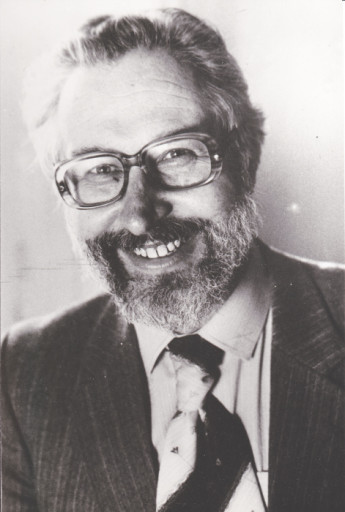

Alexander Gurshtein
February 21, 1937 — April 3, 2020
Alexander A. Gurshtein (February 21, 1937- April 3, 2020), Ph.D., passed away in his home in Grand Junction, CO last week. He is survived by his wife, Olga Vorobieva; three children, Kirill, Ksenya, and Michael; four granddaughters, and three great-grandchildren.
Alex was born in Moscow, Russia during the height of the Stalinist purges, and his early years were shaped by the privations of World War II and the loss of his father in that war, as well as the anti-Semitism that he, like thousands of Soviet Jews, experienced firsthand when finishing school and entering university in the mid-1950s.
As a boy, Alex got fascinated by astronomy by visiting the Moscow Planetarium, and it remained his passion for his entire career. Graduating with a degree in astrometry from the Moscow State Institute of Geodesy and Cartography (1959), he quickly went on to work inside the Russian Academy of Sciences for the Soviet space program in the headiest years of the Cold War space race. He worked first at the Shternberg State Astronomy Institute and later at the Institute for Space Exploration. At the height of his career, the research group he led chose landing locations for Soviet unmanned missions to the Moon. Telling stories about his various encounters with a cast of colorful characters in those years was one of Alex’s favorite pastimes; his memoir, A Moscow Astronomer at the Dawn of the Space Age (2012), contains a detailed and lively account of that period, enhanced by the author’s uncanny ability to remember names and dates.
The son of a notable literary critic and translator, Alex always had literary ambitions. Even in the years of his work for the space program, he wrote numerous popular science articles for Soviet newspapers, magazines, and radio on the topics of astronomy and space exploration. One of his proudest moments was sneaking into national print a quote from poet Maximilian Voloshin, whose poetry was banned and censored by Soviet authorities. In 1973, he published The Eternal Secrets of the Sky, a book on the history of astronomy for young adults that had two subsequent editions and a total print run of 400,000. Around 1980, while on temporary professional hiatus, Alex spent his time researching and writing a historical novel about the founding of the Paris observatory. He published that book as The Stars of Paris in 2016.
In 1981, he began a new professional chapter at the Institute for the History of Natural Sciences and Technology. Since the early 1990s, he turned his attention to the earliest history of the Western Zodiac. He saw as the most significant scientific accomplishment of his career the theory of the origin and development of the Zodiac that he elaborated in numerous Russian and English language articles and set down in its most complete form in The Puzzle of the Western Zodiac: Its Wisdom and Evolutionary Leaps. A Painful Ascent to the Truth (2017).
Alex was a creative polymath who followed his many curiosities. He saw through the publication of at least two board games in the USSR. He also deeply loved the history of Moscow—the simplest of walks around his central Moscow neighborhood would turn into a fascinating excursion. Knowing the city intimately, in the early 1990s, he got involved with Russian television, reconstructing the fictional broom flight of Margarita from the novel The Master and Margarita for one TV episode. At various points, he served as an advisor on science education at the Russian Ministry of Education, helped vet astronomy-related stamps for the Russian postal service (he was an avid life-long philatelist and bibliophile), advised on book illustrations for children’s science books, and served as a Deputy in a District Council of People’s Deputies in the tumultuous days of Russia’s transition to democracy in the early 1990s. In 1995, Alex was able to bring his family to the United States, settling in Grand Junction, CO, where he taught at Mesa State College (now Colorado Mesa University) until 2010. He leaves behind a global network of family members, friends, colleagues, and students who were touched by his energetic pursuit of knowledge, deep commitment to education, and passionate engagement with his work over the course of six decades.
Service Schedule
Past Services
24 Hour Viewing
Friday, April 10, 2020
Starts at 10:00 am (Mountain time)
Browns Service Center
Guestbook
Visits: 2
This site is protected by reCAPTCHA and the
Google Privacy Policy and Terms of Service apply.
Service map data © OpenStreetMap contributors



